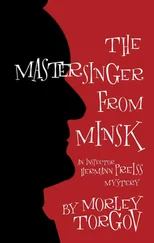Christopher Morley - Where the Blue Begins
Здесь есть возможность читать онлайн «Christopher Morley - Where the Blue Begins» весь текст электронной книги совершенно бесплатно (целиком полную версию без сокращений). В некоторых случаях можно слушать аудио, скачать через торрент в формате fb2 и присутствует краткое содержание. Жанр: Проза, на английском языке. Описание произведения, (предисловие) а так же отзывы посетителей доступны на портале библиотеки ЛибКат.
- Название:Where the Blue Begins
- Автор:
- Жанр:
- Год:неизвестен
- ISBN:нет данных
- Рейтинг книги:5 / 5. Голосов: 1
-
Избранное:Добавить в избранное
- Отзывы:
-
Ваша оценка:
- 100
- 1
- 2
- 3
- 4
- 5
Where the Blue Begins: краткое содержание, описание и аннотация
Предлагаем к чтению аннотацию, описание, краткое содержание или предисловие (зависит от того, что написал сам автор книги «Where the Blue Begins»). Если вы не нашли необходимую информацию о книге — напишите в комментариях, мы постараемся отыскать её.
Where the Blue Begins — читать онлайн бесплатно полную книгу (весь текст) целиком
Ниже представлен текст книги, разбитый по страницам. Система сохранения места последней прочитанной страницы, позволяет с удобством читать онлайн бесплатно книгу «Where the Blue Begins», без необходимости каждый раз заново искать на чём Вы остановились. Поставьте закладку, и сможете в любой момент перейти на страницу, на которой закончили чтение.
Интервал:
Закладка:
“I am not so sure of that,” said Gissing. But the Captain had already departed with a clouded brow.
On the chart-room roof Gissing had discovered an alluring instrument, the exact use of which he did not know. It seemed to be some kind of steering control. The dial was lettered, from left to right, as follows Hard a Port, Port, Steady, Course, Steady, Starbd, Hard a Starbd. At present the handle stood upon the section marked Course. After a careful study of the whole seascape, it seemed to Gissing that off to the south the ocean looked more blue and more interesting. After some hesitation he moved the handle to the Port mark, and waited to see what would happen. To his delight he saw the bow swing slowly round, and the Pomerania's gleaming wake spread behind her in a whitened curve. He descended to the bridge, a little nervous as to what Mr. Pointer might say, but he found the Mate gazing across the water with the same fierce and unwearying attention.
“I have changed the course,” he said.
Mr. Pointer saluted, but said nothing.
Having succeeded so far, Gissing ventured upon another innovation. He had been greatly tempted by the wheel, and envied the stolid quartermaster who was steering. So, assuming an air of calm certainty, he entered the wheelhouse.
“I'll take her for a while,” he said.
“Aye, aye, sir,” said the quartermaster, and surrendered the wheel to him.
“You might string out a few flags,” Gissing said. He had been noticing the bright signal buntings in the rack, and thought it a pity not to use them.
“I like to see a ship well dressed,” he added.
“Aye, aye, sir,” said Dane. “Any choice, sir?”
Gissing picked out a string of flags which were particularly lively in colour-scheme, and had them hoisted. Then he gave his attention to the wheel. He found it quite an art, and was surprised to learn that a big ship requires so much helm. But it was very pleasant. He took care to steer toward patches of sea that looked interesting, and to cut into any particular waves that took his fancy. After an hour or so, he sighted a fishing schooner, and gave chase. He found it so much fun to run close beside her (taking care to pass to leeward, so as not to cut off her wind) that a mile farther on he turned and steered a neat circle about the bewildered craft. The Pomerania's passengers were greatly interested, and lined the rails trying to make out what the fishermen were shouting. The captain of the schooner seemed particularly agitated, kept waving at the signal flags and barking through a megaphone. During these manoeuvres Mr. Pointer gazed so hard at the horizon that Gissing felt a bit embarrassed.
“I thought it wise to find out exactly what our turning-circle is,” he said.
Mr. Pointer saluted. He was a well-trained officer.
Late in the afternoon the Captain reappeared, looking more cheerful. Gissing was still at the helm, which he found so fascinating he would not relinquish it. He had ordered his tea served on a little stand beside the wheel so that he could drink it while he steered. “Hullo!” said the Captain. “I see you've changed the course.”
“It seemed best to do so,” said Gissing firmly. He felt that to show any weakness at this point would be fatal.
“Oh, well, probably it doesn't matter. I'm coming round to some of your ideas.”
Gissing saw that this would never do. Unless he could keep the master disturbed by philosophic doubts, Scottie would expect to resume command of the ship.
“Well,” he said, “I've been thinking about it, too. I believe I went a bit too far. But what do you think about this? Do you believe that Conscience is inherited or acquired? You sea how important that is. If Conscience is a kind of automatic oracle, infallible and perfect, what becomes of free will? And if, on the other hand, Conscience is only a laboriously trained perception of moral and social utilities, where does your deity come in?”
Gissing was aware that this dilemma would not hold water very long, and was painfully impromptu; but it hit the Captain amidships.
“By Jove,” he said, “that's terrible, isn't it? It's no use trying to carry on until I've got that under the hatch. Look here, would you mind, just as a favour, keep things going while I wrestle with that question? — I know it's asking a lot, but perhaps—”
“It's quite all right,” Gissing replied. “Naturally you want to work these things out.”
The Captain started to leave the bridge, but by old seafaring habit he cast a keen glance at the sky. He saw the bright string of code flags fluttering. He seemed startled.
“Are you signalling any one?” he asked.
“No one in particular. I thought it looked better to have a few flags about.”
“I daresay you're right. But better take them down if you speak a ship. They're rather confusing.”
“Confusing? I thought they were just to brighten things up.”
“You have two different signals up. They read, Bubonic plague, give me a wide berth. Am coming to your assistance.”
Toward dinner time, when Gissing had left the wheel and was humming a tune as he walked the bridge, the steward came to him.
“The Captain's compliments, sir, and would you take his place in the saloon to-night? He says he's very busy writing, sir, and would take it as a favour.”
Gissing was always obliging. There was just a hint of conscious sternness in his manner as he entered the Pomerania's beautiful dining saloon, for he wished the passengers to realize that their lives depended upon his prudence and sea-lore. Twice during the meal he instructed the steward to bring him the latest barometer reading; and after the dessert he scribbled a note on the back of a menu-card and had it sent to the Chief Engineer. It said —
Dear Chief: Please keep up a good head of steam to-night. I am expecting dirty weather.
Mr. Gissing,
(Staff-Captain)
What the Chief said when he received the message is not included in the story.
But the same social aplomb that had made Gissing successful as a floorwalker now came to his rescue as mariner. The passengers at the Captain's table were amazed at his genial charm. His anecdotes of sea life were heartily applauded. After dinner he circulated gracefully in the ladies' lounge, and took coffee there surrounded by a chattering bevy. He organized a little impromptu concert in the music room, and when that was well started, slipped away to the smoke-room. Here he found a pool being organized as to the exact day and hour when the Pomerania would reach port. Appealed to for his opinion, he advised caution. On all sides he was in demand, for dancing, for bridge, for a recitation. At length he slipped away, pleading that he must keep himself fit in case of fog. The passengers were loud in his praise, asserting that they had never met so agreeable a sea-captain. One elderly lady said she remembered crossing with him in the old Caninia, years ago, and that he was just the same then.
CHAPTER FIFTEEN
And so the voyage went on. Gissing was quite content to do a two-hour trick at the wheel both morning and afternoon, and worked out some new principles of steering which gave him pleasure. In the first place, he noticed that the shuffle-board and quoit players, on the boat deck aft, were occasionally annoyed by cinders from the stacks, so he made it a general plan to steer so that the smoke blew at right angles to the ship's course. As the wind was prevailingly west, this meant that his general trend was southerly. Whenever he saw another vessel, a mass of floating sea-weed, a porpoise, or even a sea-gull, he steered directly for it, and passed as close as possible, to have a good look at it. Even Mr. Pointer admitted (in the mates' mess) that he had never experienced so eventful a voyage. To keep the quartermasters from being idle, Gissing had them knit him a rope hammock to be slung in the chart-room. He felt that this would be more nautical than a plush settee.
Читать дальшеИнтервал:
Закладка:
Похожие книги на «Where the Blue Begins»
Представляем Вашему вниманию похожие книги на «Where the Blue Begins» списком для выбора. Мы отобрали схожую по названию и смыслу литературу в надежде предоставить читателям больше вариантов отыскать новые, интересные, ещё непрочитанные произведения.
Обсуждение, отзывы о книге «Where the Blue Begins» и просто собственные мнения читателей. Оставьте ваши комментарии, напишите, что Вы думаете о произведении, его смысле или главных героях. Укажите что конкретно понравилось, а что нет, и почему Вы так считаете.










